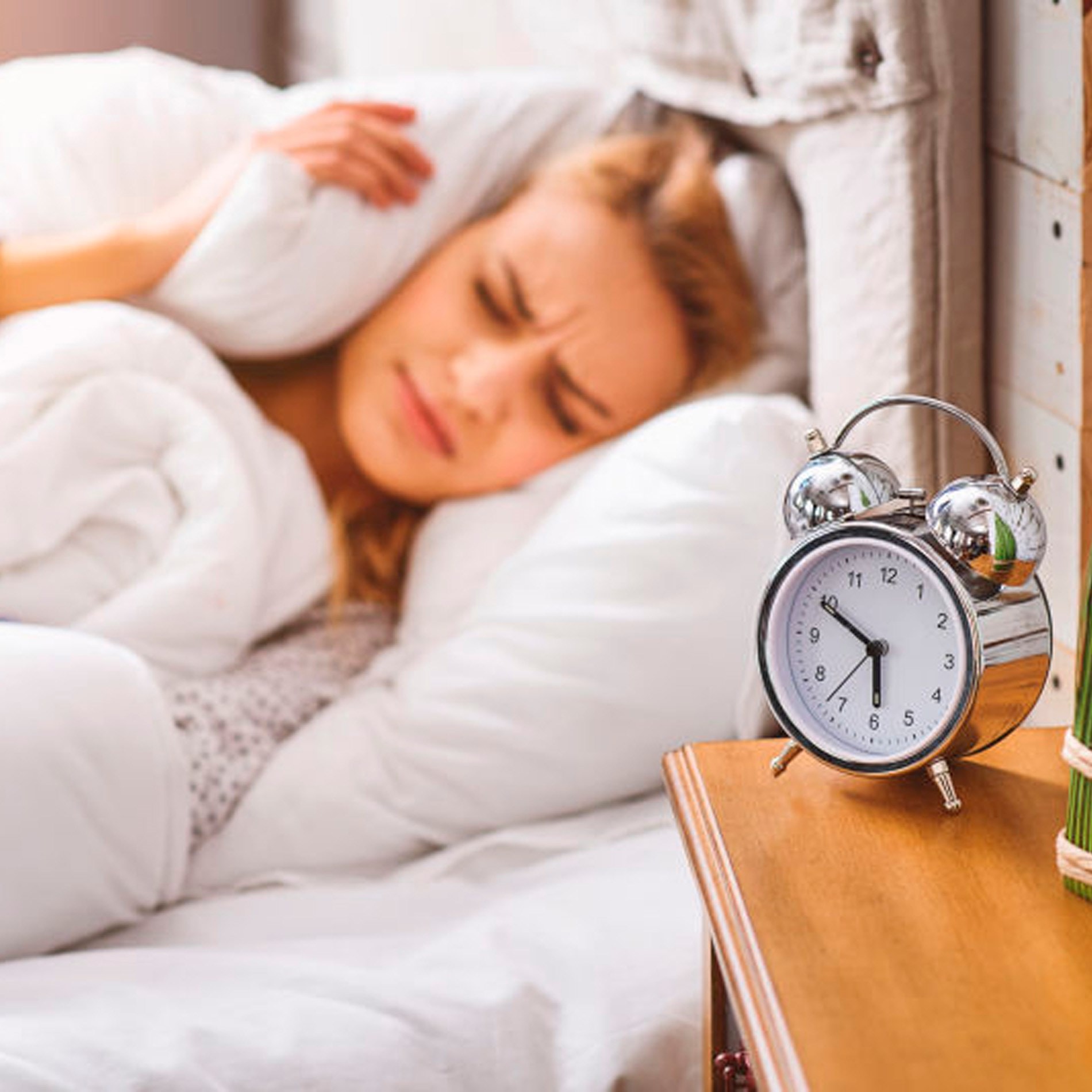Probiotics in Childhood
All parents want to support their children’s health, and one of the most important ways to do this is to start from the inside out – by supporting their gut health. Poor gut health can affect digestion, causing issues like constipation, This article will help you to find the best probiotics for your children and suggest some easy ways to take them - even for the fussiest members of the family!
Probiotics can be an easy addition to a childs daily health routine to give their gut flora a boost. Read on to find out everything you need to know about choosing the best probiotic for children:
- Are probiotics good for kids?
- Benefits of probiotics in childhood
- Which are the best probiotics for your child?
- Probiotics for childhood constipation
- Best probiotics for a child on antibiotics
- Probiotics for childhood immunity
- Probiotics for asthmatic children
- Probiotics for eczema and allergies in children
- Probiotics for IBS in childhood
- Probiotics for the autistic child
- Are probiotics safe for children?
- Children's probiotics key takeaways
Are probiotics good for kids?
If you read the second article in our ‘Early life microbiome' series, ‘Child Microbiome: Dr Kate's Guide’, you can see that the balance of the gut microbiome is very important. Childhood years come with factors such as school, stress, high-sugar & low-fibre diet, medications/antibiotics, and busy lifestyles which can all impact your child’s microbiome composition and reduce levels of friendly bacteria. There are many ways to support gut health, and you can read more about this in our article Gut Health, All You Need to Know. Giving your children probiotics, also known as live cultures or good/friendly bacteria, are an easy way to ensure they have extra support they may need in the hustle and bustle of daily life.
Benefits of probiotics in childhood

Digestion and energy
Your child is constantly growing! As such it’s vital they are digesting their food and absorbing the nutrients well. Our microbiome provides digestive enzymes to help kids to break down their food1. Plus, they support a healthy gut environment ensuring good nutrient absorption. Many microbes in our gut can also produce essential vitamins2
Supporting immunity
Schools and nurseries are notorious hangouts for harmful bugs, where they can quickly spread. With 70% of our immune system being located in the gut, the good news is that you can support your child’s immunity with probiotics. Our gut microbes essentially act as teachers, helping the immune system respond to threats appropriately. Probiotics become part of our friendly bacteria barrier which protects our gut cells and immune system.
Mood and wellbeing
Probiotics may be able to help by modulating our mood via the connection of our brain and microbiome known as the gut-brain axis. It’s estimated that 90% of the happy hormone serotonin, is produced in the gut. The neurotransmitter GABA is also important for helping us to ‘switch off’ and sleep and GABA can be produced by friendly bacteria in the gut such as Bifidobacteria and Lactobacilli3. Read more about the Gut-Brain Axis and Probiotics.
Skin health
Unfortunately, children often suffer from skin problems like eczema and acne, currently 1 in 5 children in the UK have eczema4. Probiotics may be able to improve skin health by supporting a healthy gut lining, increasing the levels of good bacteria in the gut, and calming down inflammation5. For more information, take a look at Probiotics for Acne and Skin Health.
Which are the best probiotics for your child?
There are a few considerations to take into account, but a good starting point is to select a high-quality supplement containing strains such as Bifidobacterium breve M-16V®, Lactobacillus rhamnosus GG, or Bacillus coagulans Unique IS-2 to support your child’s individual needs. Format should be considered, as you need to choose a product that your child will want to take.
Probiotic drops
That’s right, you can give your child an easy liquid probiotic! Simply drop the recommended number of drops per day right into your child’s mouth, or mix it with food or drink. This children’s probiotic is a particularly useful format for very young children.
Powder probiotics
Many probiotics come in a powder or sachet format. This can be particularly useful as children often don’t like to swallow capsules. The powder can be easily hidden in their favourite foods or drinks, e.g. in their breakfast cereal or yoghurt.
Probiotic gummies
Older children may prefer to take their probiotics as a chewy, naturally flavoured ‘gummy’ - be sure to choose well-researched, high-quality options with no artificial additives.
Probiotic foods for kids
Some fermented foods naturally contain good bacteria. This can be a good way to boost the diversity in your child’s microbiome. The only downside is many of these foods, such as kefir, kimchee and sauerkraut, have strong tastes and may not be very child-friendly. It's also difficult to know which strains they contain. If you're interested, then take a look at some of our favourite fermented foods.
Probiotic yoghurt for kids
Probiotic yoghurts from the supermarkets can be a popular choice with kids, but some are healthier than others! Many yoghurts and yoghurt drinks are very high in sugar, or contain artificial sweeteners which may have negative effects on the gut microbiome24. Some yoghurts may not even contain any live cultures at all! Find out everything you need to know about choosing the healthiest yoghurts and fermented drinks in our helpful article.
Probiotic supplements for kids
Finally, when choosing probiotic supplements for children under 12, it is best to look for high-quality products containing probiotic strains that have been specifically researched in this age group, i.e., infants, babies and children. Although it’s typically reported that the microbiome settles at around 3 years of age, some research disputes this. One study showed that a child’s (aged 7-12) microbiome was still different from an adult’s6 in terms of composition and functional qualities.
Let’s look at some probiotics and prebiotics which have been researched in babies and children.
Probiotics for childhood constipation
There are many reasons why a child may suffer from regularity issues, such as a low-fibre and/or high-sugar diet, dehydration, medications, and stress/anxiety. The NHS states that if your child has fewer than three bowel movements a week then they have constipation7. Rather than laxatives, trying probiotics for kids' constipation can be a good safe, natural option to start with. These supplements may help in numerous ways, including aiding the movement of the colon, known as peristalsis.
One of the most researched probiotic strains for adult constipation is Bifidobacterium lactis BB-12®, but it has also been researched in children8. In clinical trials, individuals who took B. lactis BB-12® had significantly more bowel movements per week9 without causing loose stools10. The strain Bacillus coagulans Unique-IS2 has also been shown to reduce constipation and straining in children25.
Another strain, Bifidobacterium breve M-16V®, has been shown to improve stool consistency in young children28. In one clinical trial, children who took B. breve M-16V® for 12 weeks had a softer stool consistency compared to the control group. If after a few days your child has still not had a bowel movement or they often suffer from regularity issues, then consult with your child’s doctor.
Healthcare professionals can find out more about these strains on the Probiotics Database: see Bacillus coagulans Unique-IS2 and Bifidobacterium lactis BB-12®.
Best probiotics for a child on antibiotics
Unfortunately, taking antibiotics can wipe out lots of friendly bacteria as well as bad bacteria, this can lead to a microbial imbalance.11 If your child needs to take antibiotics and is already taking a daily probiotic supplement, you can continue giving them this but just leave a two-hour gap between the antibiotic and probiotic.
If they are not already taking a probiotic supplement, or if it’s more convenient, then alongside the medication you could give them a specific probiotic designed to be taken with antibiotics. There is a unique combination of extensively researched probiotic strains, Lactobacillus acidophilus Rosell 52 and Lactobacillus rhamnosus Rosell 11, which have been trialled alongside antibiotics and shown to survive to reach the gut alive 12.
Lactobacillus rhamnosus GG® is a very well-known probiotic strain which has been trialled for antibiotic associated diarrhoea (ADD). In one clinical trial, children who took L. rhamnosus GG® had significantly increased stool consistency and reduced stool frequency during antibiotic therapy by the 10th day compared to the control group29.
For more information on this topic, you can read Probiotics with Antibiotics
Probiotics for childhood immunity
The immune system is heavily challenged in school environments so needs all the support it can get! A combination of three probiotic strains have been shown to reduce the risk of childhood illnesses as well as the time taken off school13. L. acidophilus Rosell 52, Bifidobacterium infantis Rosell 33 and Bifidobacterium bifidum Rosell 71 were the three strains used in this gold-standard study of 135 children. Also, the strain Bacillus coagulans Unique-IS2 has shown its ability to increase Natural Killer (NK) cells27. NK cells are an important component of our immunity as they are involved in fighting viral infections, and killing damaged cells.
Another strain, Lactobacillus rhamnosus GG®, has been shown to reduce the risk and duration of upper respiratory infections in children30. In one study of 281 children, the length of time the children suffered with runny noses and sore throats was significantly shorter in those taking L. rhamnosus GG® for 3 months. These highly researched strains are great options for kids and you can find out more about probiotics for immune health in this article: Probiotics for Your Family’s Immunity

Probiotics for asthmatic children
It’s estimated that 1 in 11 children suffer with asthma14. Interestingly, a large scale 2022 study found that one of the most important determinants of the developing microbiota in both the airway and gut is having siblings in the home with a close age gap34. Some probiotics have been researched in asthmatics and shown to have beneficial effects, but research into the gut-lung axis is still in its infancy.
In addition to their benefits for immune health (see previous section), L. acidophilus Rosell 52, B. infantis Rosell 33 and B. bifidum Rosell 71 were shown in a clinical trial with 78 children to reduce wheezing-like symptoms. Symptoms were reduced after 3 months and disappeared after 6 months. This result was still maintained at 9 months15. Lactobacillus reuteri Protectis® has also been shown to significantly reduce bronchial airway inflammation in 43 asthmatic children16. Finally, there is evidence for Bifidobacterium breve M-16V® in reducing the frequency of wheezing and noisy breathing in infants17. You can find more information here: Probiotic Potential for Asthma.
Probiotics for eczema and allergies in children
Children with allergies often exhibit a more inflammatory profile, dysbiosis and leaky gut18,19 and unfortunately, allergies and eczema often go hand in hand. The gut-skin axis is starting to be explored and we can see that conditions such as acne, eczema and psoriasis are linked to gut health. Probiotics can help to support gut health and modulate immune function to alleviate these issues.
Lactobacillus rhamnosus GG® has been shown to increase antibodies (our immune system's 'frontline soldiers') in saliva, thus potentially improving immune responses in those with hay fever20. A similar gold standard study was conducted over the birch pollen season using a combination of Lactobacillus acidophilus NCFM® and Bifidobacterium lactis Bl-04®. The strains were given to 47 children with hay fever. Generally, fewer children reported runny and stuffy noses, plus white blood cells associated with allergy were reduced in the probiotic group21.
Two other probiotics strains, Lactobacillus rhamnosus HN001 and Bifidobacterium breve M-16V®, have also been shown to be helpful for children with eczema and allergies. In a long-term study of over 400 children, L. rhamnosus HN001 was associated with significantly lower cumulative prevalence of eczema and sensitization31,32. The clinical trial found that this particular strain can protect against the development of eczema and atopic sensitisation until at least age 11 years. Finally, there is evidence for B. breve M-16V® reducing acute allergic skin reactions in infants33. You can read more about this subject here: Could probiotics help with allergies?
Healthcare professionals can find more information about research on these strains on the Probiotics Database: Lactobacillus acidophilus NCFM® and Bifidobacterium lactis Bl-04®.
Probiotics for IBS in childhood
Irritable bowel syndrome (IBS) is a functional bowel disorder and is said to now affect 12% of the total global population26, with its prevalence in children also increasing. Much of the research into probiotics for IBS has focussed on the adult population, however, one particular strain shows excellent results in children specifically. 141 children were split into 2 groups and given either Bacillus coagulans Unique-IS2 or placebo for 8 weeks. The children were assessed for a variety of IBS symptoms, including abdominal discomfort, bloating and passage of gas. Significant improvement was seen across all symptoms in the probiotic group, as compared with those in the placebo group26.
Probiotics for the autistic child

Kids with autism have a different microbial composition to non-autistic kids. They have higher levels of some harmful bacteria, lower levels of short-chain fatty acids and Bifidobacteria, which is usually naturally present in the healthy infant gut22. Gut issues such as constipation, diarrhoea and abdominal pain are very common in autistic children and can cause additional distress.
Research on specific probiotic strains is lacking for autism with inconsistent results. However, there is some promising research using prebiotics. One study using prebiotic galacto-oligosaccharides (GOS) found a significant improvement in anti-social behaviour23. You could also consider a probiotic to support digestive symptoms. Saccharomyces boulardii is a well-known probiotic that has been extensively researched for loose stools in hundreds of children, making it a nice, natural option to try. Persistent symptoms should always be discussed with your child’s doctor.
Healthcare professionals can read more on probiotics and autism on Probiotic Professionals, and find more information about Saccharomyces boulardii on the Probiotics Database.
Are probiotics safe for children?
The only time you'd need to exercise caution when giving your child a probiotic is if they have a serious illness and/or a compromised immune system. In this case, you should always speak to your child's doctor before giving any natural supplements. For more information read the following articles:
When should I NOT take probiotics?
I’m severely immunosuppressed: why can’t I take live cultures?
Children's Probiotics key takeaways
- A child’s microbiome is important for their overall health and wellbeing
- It is best to choose probiotic strains that have been extensively researched for your child’s individual health needs
- If your child is taking antibiotics, consider specific probiotic strains researched alongside antibiotics or give their usual supplement 2 hours away from the medication
- Children’s probiotics come in different formats; drops/liquid, powder/sachet, gummy or capsule
- Don’t forget diet – it’s always good to keep sugar to a minimum, and include gut-supporting high fibre and fermented foods
This article forms part 5 in our educational resource, ‘Early life microbiome series’, where we take you on a journey through the development and support of the microbiome from conception through to young adulthood. The other articles in this series are:
- All About The Microbiome
- Child Microbiome: Dr Kate's Guide - this explores the factors affecting the microbiome in childhood
- Probiotics for Pregnancy
- Baby Probiotics
- Probiotics for Kids
- Which probiotics are best for teenagers?
References
- Pollet R et al., "An Atlas of β-Glucuronidases in the Human Intestinal Microbiome," Structure, vol. 25, no. 7, pp. 967-977, 2017.
- LeBlanc J et al., "Bacteria as vitamin suppliers to their host: a gut microbiota perspective," Current Opinion in Biotechnology, vol. 24, no. 2, pp. 160-168, 2013.
- Foster J et al., "Gut–brain axis: how the microbiome influences anxiety and depression," Trends in Neuroscience , vol. 36, no. 5, pp. 305-312, 2013.
- "British Skin Foundation," [Online]. Available: https://knowyourskin.britishskinfoundation.org.uk/condition/eczema/#:~:text=1%20in%20every%205%20children,have%20AE%20as%20a%20child.. [Accessed 7 September 2020].
- Salem I et al., "The Gut Microbiome as a Major Regulator of the Gut-Skin Axis," Front Microl, p. 9: 1459, 2018.
- Hollister E et al., "Structure and function of the healthy pre-adolescent pediatric gut microbiome," Microbiome, vol. 3, no. 36, pp. https://doi.org/10.1186/s40168-015-0101-x, 2015.
- "Constipation in children," NHS, 14 February 2020. [Online]. Available: https://www.nhs.uk/conditions/pregnancy-and-baby/constipation-and-soiling/. [Accessed 7 September 2020].
- Tan T et al., "Safety of Bifidobacterium animalis subsp. lactis (B. lactis) strain BB-12®-supplemented yogurt in healthy children," J Pediatr Gastroenterol Nutr., vol. 64, no. 2, pp. 302-309, 2018.
- Eskesen D et al., "Effect of the probiotic strain Bifidobacterium animalis subsp. lactis, BB-12®, on defecation frequency in healthy subjects with low defecation frequency and abdominal discomfort: a randomised, double-blind, placebo-controlled, parallel-group trial," British Journal of Nutrition , p. doi:10.1017/S0007114515003347, 2015 .
- Nishida S et al., "Effect of Yoghurt Containing Bifidobacterium lactis BB-12® on Improvement of Defecation and Fecal Microflora of Healthy Female Adults," Milk Science , vol. 53, no. 2, pp. 71-80, 2004.
- Zhang S et al., "Facing a new challenge: the adverse effects of antibiotics on gut microbiota and host immunity," Chin Med J (Engl)., vol. 132, no. 10, pp. 1135-1138, 2019.
- Nagulesapillai, V. et al (2015) Detection and quantification of strain specific probiotics in clinical faecal samples of healthy adults on antibiotic treatment by quantitative PCR.
- Cazzola, "Efficacy of a synbiotic supplementation in the prevention of common winter diseases in children: a randomised, double blind, placebo-controlled pilot study," Therapeutic advances in respiratory disease, vol. 4, no. (5), pp. 271-8, 2010.
- "Asthma UK," [Online]. Available: https://www.asthma.org.uk/about/media/facts-and-statistics/. [Accessed 7 September 2020].
- Stojkovic A et al., "CLinical trial (consort compliant): Optimal time period to achieve the effects on synbiotic- controlled wheezing and respiratory infections in young children," Serbian journal of management , vol. 144, no. (1-2), pp. 38-45, 2016.
- Miraglia del Giudice M et al., "Airways allergic inflammation and L. reuterii treatments in asthmatic children," J. Biol Regul. Homeost Agents, vol. 26, pp. 35-40, 2012.
- Van der Aa et al., "Synbiotics prevent asthma-like symptoms in infants with atopic dermatitis," Allergy , pp. 170-177, 2011.
- Pascal M et al., "Microbiome and Allergic Diseases," Front Immunol, vol. 8, p. doi: 10.3389/fimmu.2018.01584, 2018.
- Salameh M et al., "The role of gut microbiota in atopic asthma and allergy, implications in the understanding of disease pathogenesis," Scandinavian Journal of Immunology , vol. 91, no. 3, p. https://doi.org/10.1111/sji.12855, 2019.
- Piirainen L et al., "Effect of Lactobacillus rhamnosus GG on rBet v1 and rMal d1 specific IgA in the saliva of patients with birch pollen allergy," Annals of Allergy Asthma Immunology, vol. 100, no. 4, p. 338, 2008.
- Ouewehand A et al., "Specific probiotics alleviate allergic rhinitis during the birch pollen season," World J Gastroenterol., vol. 15, no. 26, p. 3261–3268., 2009.
- Vuong H et al., "Emerging Roles for the Gut Microbiome in Autism Spectrum Disorder. The microbiome in ASD," Biological Psychiatry, vol. 81, no. 5, pp. 411-423, 2017 .
- Grimaldi R et al., "A prebiotic intervention study in children with autism spectrum disorders (ASDs)," Microbiome, vol. 6, p. 133, 2018 .
- J. K. T. Z. D. e. a. Suez, " Artificial sweeteners induce glucose intolerance by altering the gut microbiota.," Nature, vol. 514, pp. 181-186, 2014.
- Sudha, et al. ‘’ Efficacy of Bacillus coagulans Unique IS2 in treatment of irritable bowel syndrome in children: a double blind, randomised placebo controlled study’’. Benef Microbes. 15;9(4):563-572. doi: 10.3920/BM2017.0129. 2018. Epub 2018 Apr 26.
- Lovell, et al. ‘’Global prevalence of and risk factors for irritable bowel syndrome: a meta-analysis’’. Clin Gastroenterol Hepatol. 10(7):712-721.e4. 2012.
- Sudha, M. and Arunasree, K. (2015) ‘ANTI-INFLAMMATORY AND IMMUNOMODULATORY EFFECTS OF BACILLUS COAGULANS UNIQUE IS2’, International Journal of Probiotics & Prebiotics, 10(1), pp. 31–36
- P Kosuwon et al., (2018) A synbiotic mixture of scGOS/lcFOS and Bifidobacterium breve M-16V increases faecal Bifidobacterium in healthy young children. Beneficial microbes, 9(4): 541-552.
- Vanderhoof JA et al., (1999) Lactobacillus GG in the prevention of antibiotic-associated diarrhea in children. The Journal of Paediatrics, 135(5): 564-8.
- Hojsak et al., (2010) Lactobacillus GG in the prevention of gastrointestinal and respiratory tract infections in children who attend day care centers: a randomized, double-blind, placebo-controlled trial. Clinical Nutrition, 29(3): 312-6.
- Wickens et al., (2013) Early supplementation with Lactobacillus rhamnosus HN001 reduces eczema prevalence to 6 years: does it also reduce atopic sensitization? Clinical and Experimental Allergy, 43(9): 1048-57.
- Wicken et al., (2018) Effects of Lactobacillus rhamnosus HN001 in early life on the cumulative prevalence of allergic disease to 11 years. Paediatric Allergy and Immunology, 29(8):808-814.
- Kivit et al., (2012) Galectin-9 induced by dietary synbiotics is involved in suppression of allergic symptoms in mice and humans. Allergy, 67(3):343-52.
- Christensen ED et al., (2022) The developing airway and gut microbiota in early life is infuenced by age of older siblings. Microbiome, 10:106.
- Chew C, Matsuyama M, Davies PSW, Hill RJ, Morrison M, Martin R, Codoñer FM, Knol J and Roeselers G (2024) A young child formula supplemented with a synbiotic mixture of scGOS/lcFOS and Bifidobacterium breve M-16V improves the gut microbiota and iron status in healthy toddlers. Front. Pediatr. 12:1193027. doi: 10.3389/fped.2024.1193027


